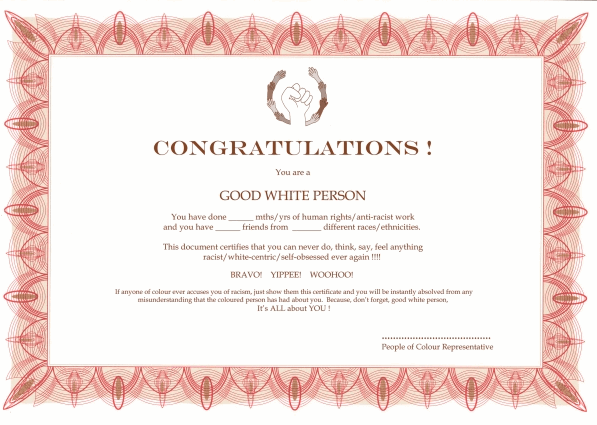
I'm A Good White Person
Myth #5: Having a black friend proves I’m not racist and exempts me from discussions on racism.
When we talk about racial disparities in society or racial hierarchies within the church, we often hear someone respond with their “good white person resume”. The one where they explain the ways they’ve done good things for Black people, storytell about their encounters (positive or negative) with Black people - any will do, or tell of the Black best friend they had when they were in third grade (or the Black girl they dated in middle school, etc.). Maybe you’ve done it before?
There’s usually no connection to the actual conversation that’s happening. So why do we as white people respond this way? Jessica Denise Dickson has written helpfully about this question.
Dr. Robin DiAngelo said in an interview that “For white people, their identities rest on the idea of racism as about good or bad people, about moral or immoral singular acts, and if we’re good, moral people we can’t be racist – we don’t engage in those acts.” Pastor Daniel Hill explains in his book White Awake, “we’re tempted to bolster our sense of identity through group association. The telltale sign of self-righteousness in everyday identity is drawing a circle around the in-group and pointing a judgmental finger at those in the out-group. In the cultural identity journey, this usually manifests as trying to prove that you belong to the group that “gets” it – or as many in my congregation joke, as being the “cool” white person that’s on the side of justice. This inevitably leads to judgment, and at times even scorn, toward those who have the other vices and behaviors.
Self-righteousness undercuts our ability to combat and dismantle racism. Once we’ve committed to a course of identity formation defined by self-righteousness and self-inclusion in the “good” group, we’re susceptible to a watered-down analysis of race. Rather than acknowledging the pervasive way race shapes us all, we look for ways to reduce racism to individual acts of immorality. While this allows us to maintain the illusion of a binary world of good/bad and in/out, it also undercuts our ability to do anything meaningful to combat racism.”
